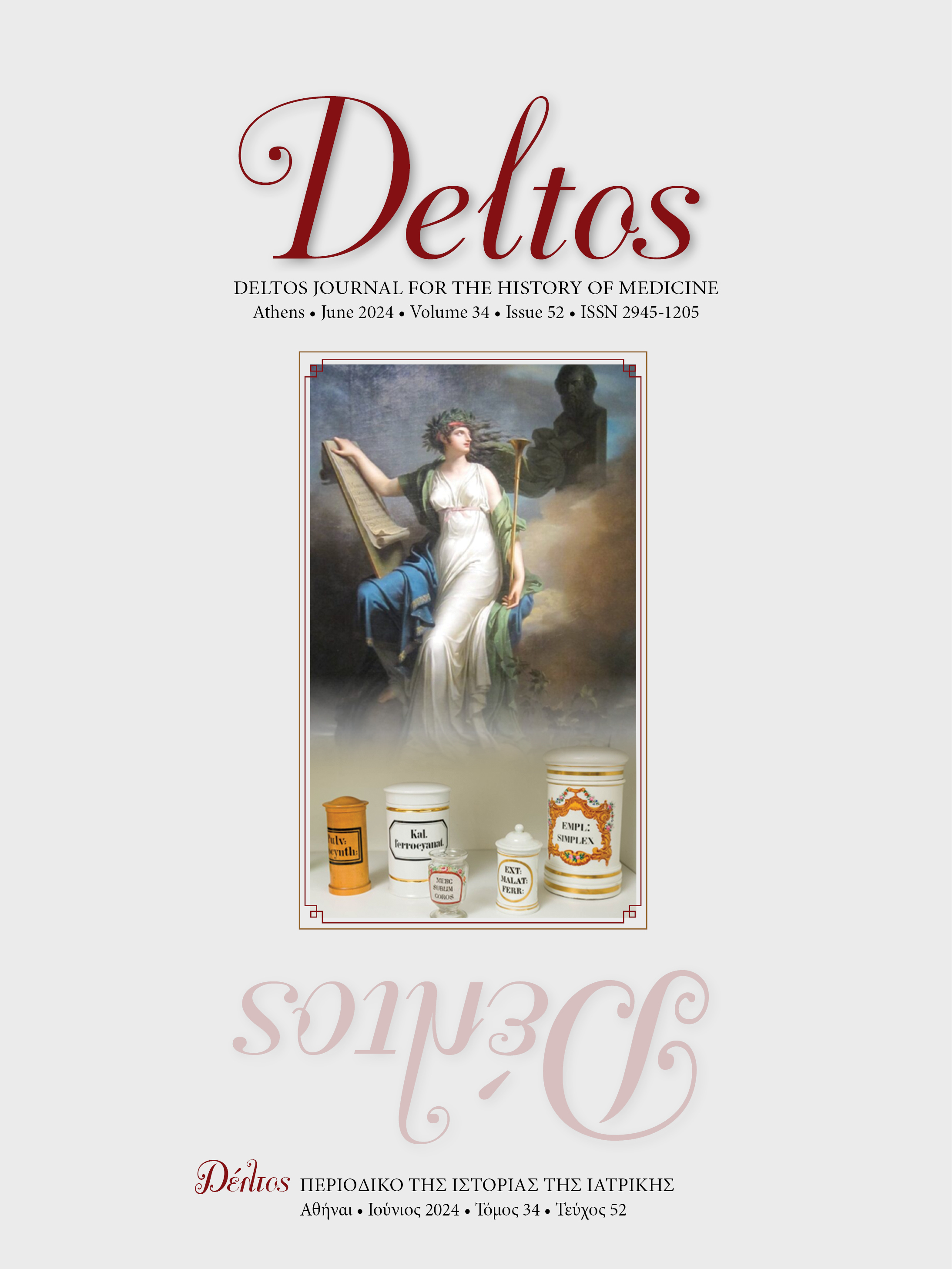On some ancient Greek and Latin medical recipes in verse. Their position in the world. Part A

Abstract
In Part A of our article, we examine medical recipes in verse within Greek literature, spanning from the Hellenistic period to the Roman Imperial era. We also briefly touch upon analogous recipes in Classical and Late Latin, as these two literary forms were intertwined for centuries. A comprehensive analysis of Latin literature in this domain remains a necessity. We explore the motivations behind these didactic poems and the metrical patterns employed in their composition. The article presents fragments of these recipes, all translated into English and several retained in their original language as well, arranged chronologically alongside succinct biographical details of their authors. These include Homer, considered their distant forebear, followed by Ovid, Aglaias of Byzantium, Andromachus the Elder, Philo of Tarsus, Damocrates, Nicander, Rufus of Ephesus, Eudemus of Pergamum, Galen, Serenus Sammonicus, The Carmen graecum de herbis, and Marcellus Empiricus. In Part B, we will continue to explore similar recipes from the Middle and Late Byzantine periods. This section will also feature examples from Medieval Latin and Islamic medical literature, illustrating the intercultural context in which these Greek verses stood. A General Discussion and Conclusions will be provided at the end of Part B.
Article Details
- How to Cite
-
Diamandopoulos, A. (2024). On some ancient Greek and Latin medical recipes in verse. Their position in the world. Part A. DELTOS, 34(52), 9–22. https://doi.org/10.12681/dj.38279
- Issue
- Vol. 34 No. 52 (2024)
- Section
- Written Symposium on Pharmaceutical Recipes in Verse. Part A

This work is licensed under a Creative Commons Attribution-NonCommercial 4.0 International License.


